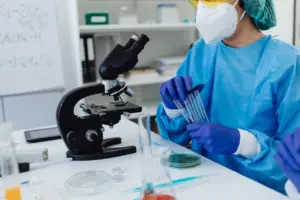
Researchers from the Madras Diabetes Research Foundation (MDRF) in Chennai and Washington University in St Louis, USA, have identified a new subtype of Maturity-Onset Diabetes of the Young (MODY).
MODY – which usually appears in childhood or adolescence – is a rare, inherited form of diabetes caused by mutations in a single gene. Unlike type 1 or type 2 diabetes, MODY typically appears before the age of 25 and is not linked to obesity or autoimmune destruction of insulin-producing cells. It is estimated to affect nearly 2 to 3 percent of all people with diabetes.
The study published in the journal Diabetes reveals that a specific gene, ABCC8, causes the MODY subtype. To date, 13 subtypes of MODY have been identified.
Also Read | Diabetes in pregnancy can increase risk of autism: Study
“This is a major step forward. By identifying these unique subtypes of ABCC8-MODY, we are close to providing more precise diagnosis, treatment and better care for young patients,” diabetologist Dr V. Mohan, Chairman of MDRF, told The Indian Express.
The study finds Loss of Function (LOF) mutations in the ABCC8 gene, unlike the Gain of Function (GOF) mutations that were previously associated with MODY and neonatal diabetes.
“LOF mutations abolish or reduce the activity of a protein, and they normally lead to Congenital Hyperinsulinism (CHI), which presents as persistent low blood glucose levels (hypoglycemia) in childhood. These patients appear to have had CHI earlier but crossed over to the opposite condition, of high blood sugar (diabetes) in later life. This is the first demonstration of this mechanism in a MODY subtype to our knowledge,” Prof G Nichols, the lead researcher from Washington University School of Medicine, USA, said, The Economic Times reported.
“This work points out the relevance of genetic testing and functional understanding for precision diagnosis of diabetes in general and MODY subtypes of diabetes in particular. We also observed that patients with this new MODY subtype do not respond to sulphonylureas (treatment), unlike other forms of MODY like MODY 3, MODY 1 and MODY 12,” Dr Mohan said.
There is currently no way to prevent genetic disorders like MODY, as they stem from inherited mutations. However, early identification of at-risk individuals—based on clinical signs or family history—can enable timely intervention.








